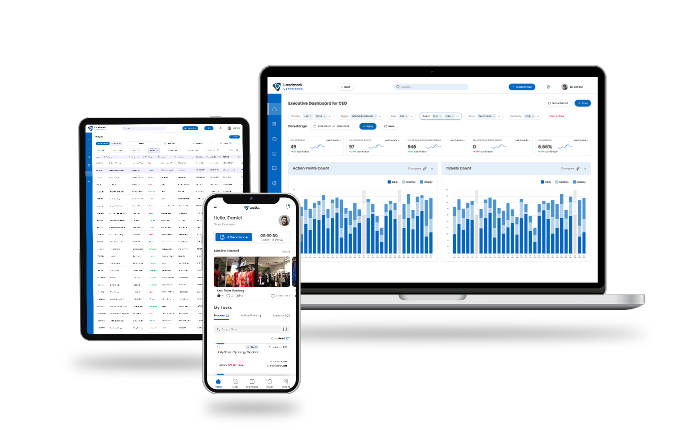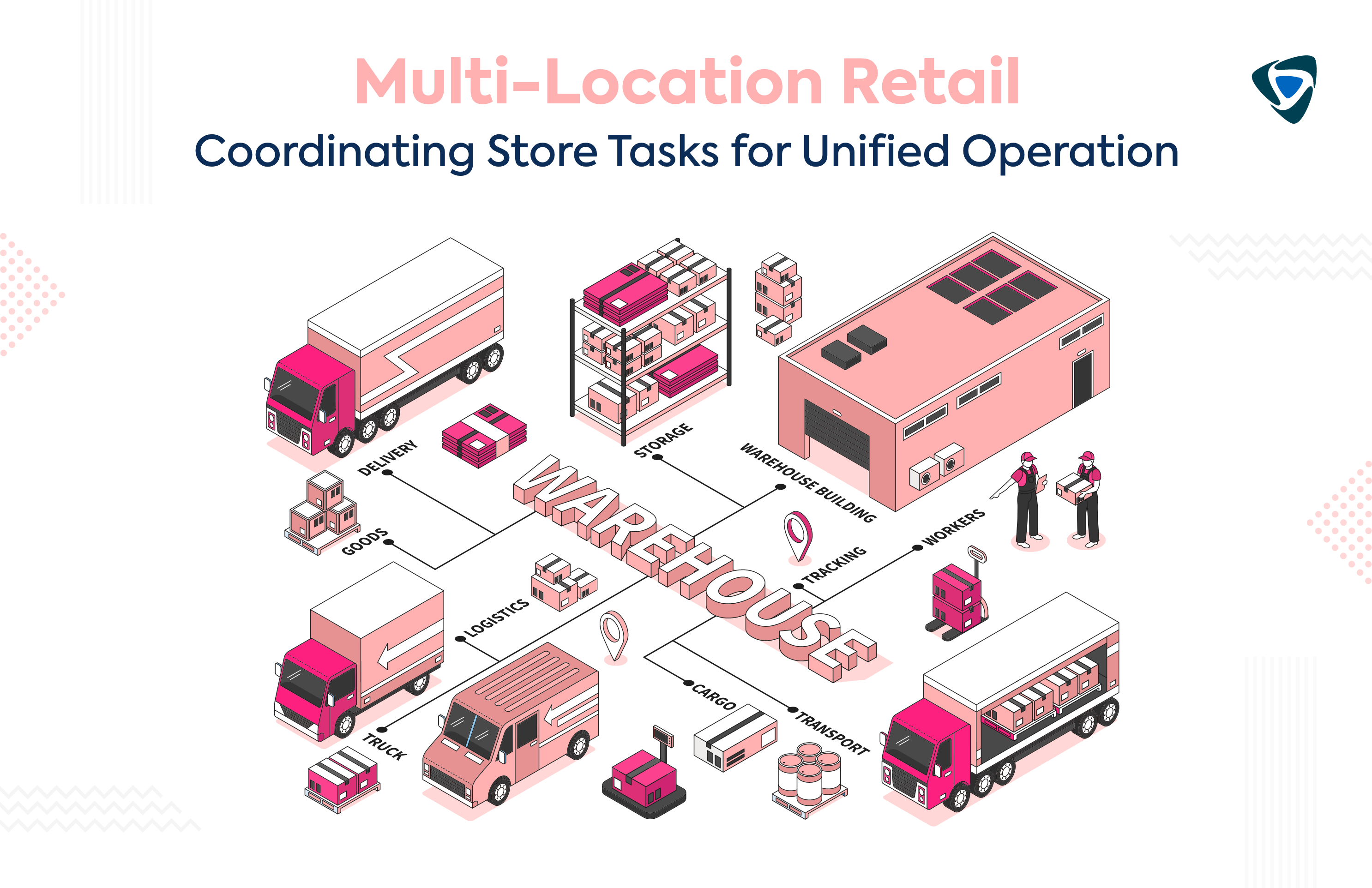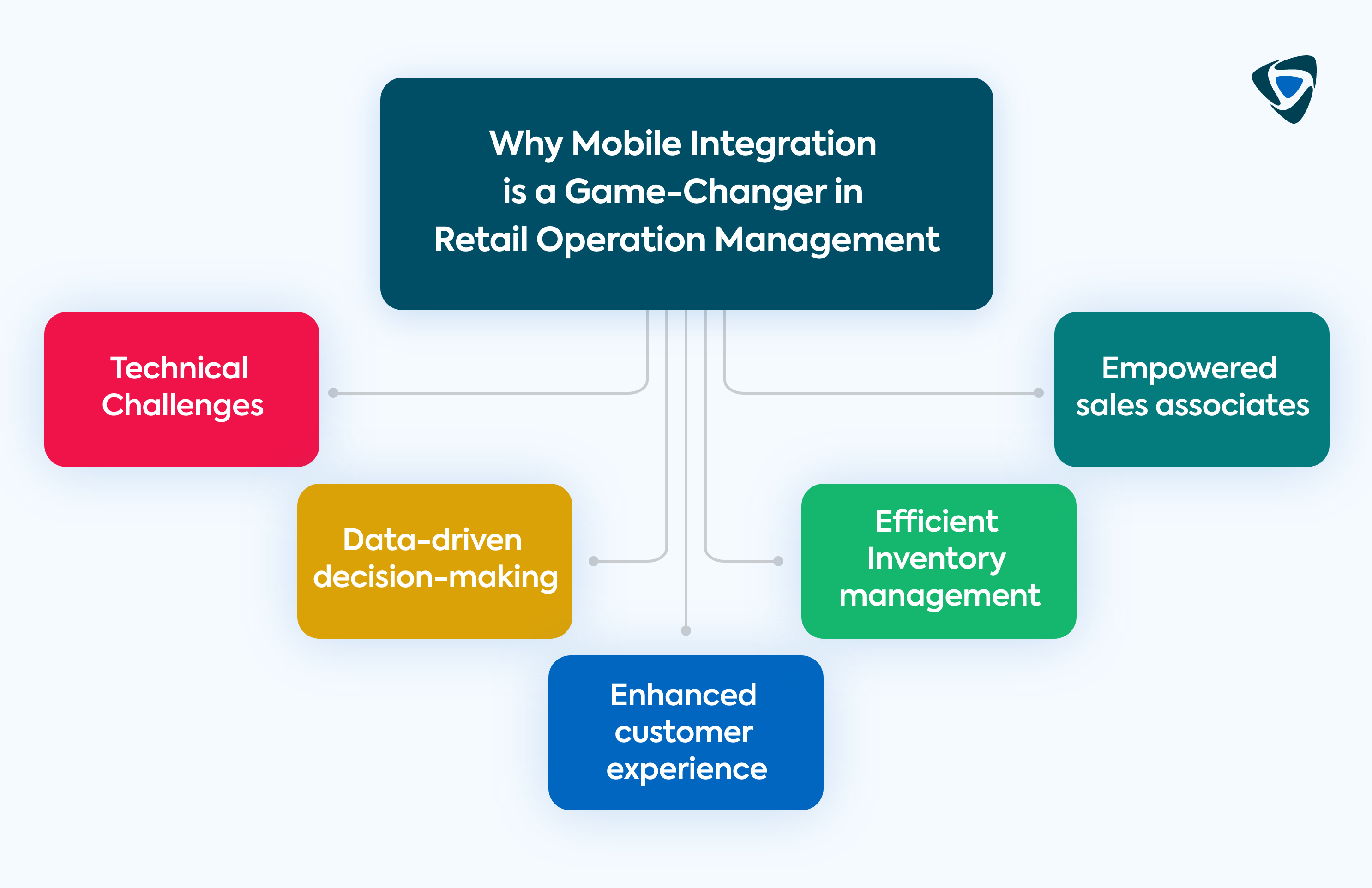Guide
Mastering Multi-Location Retail Task Management: A Comprehensive Guide
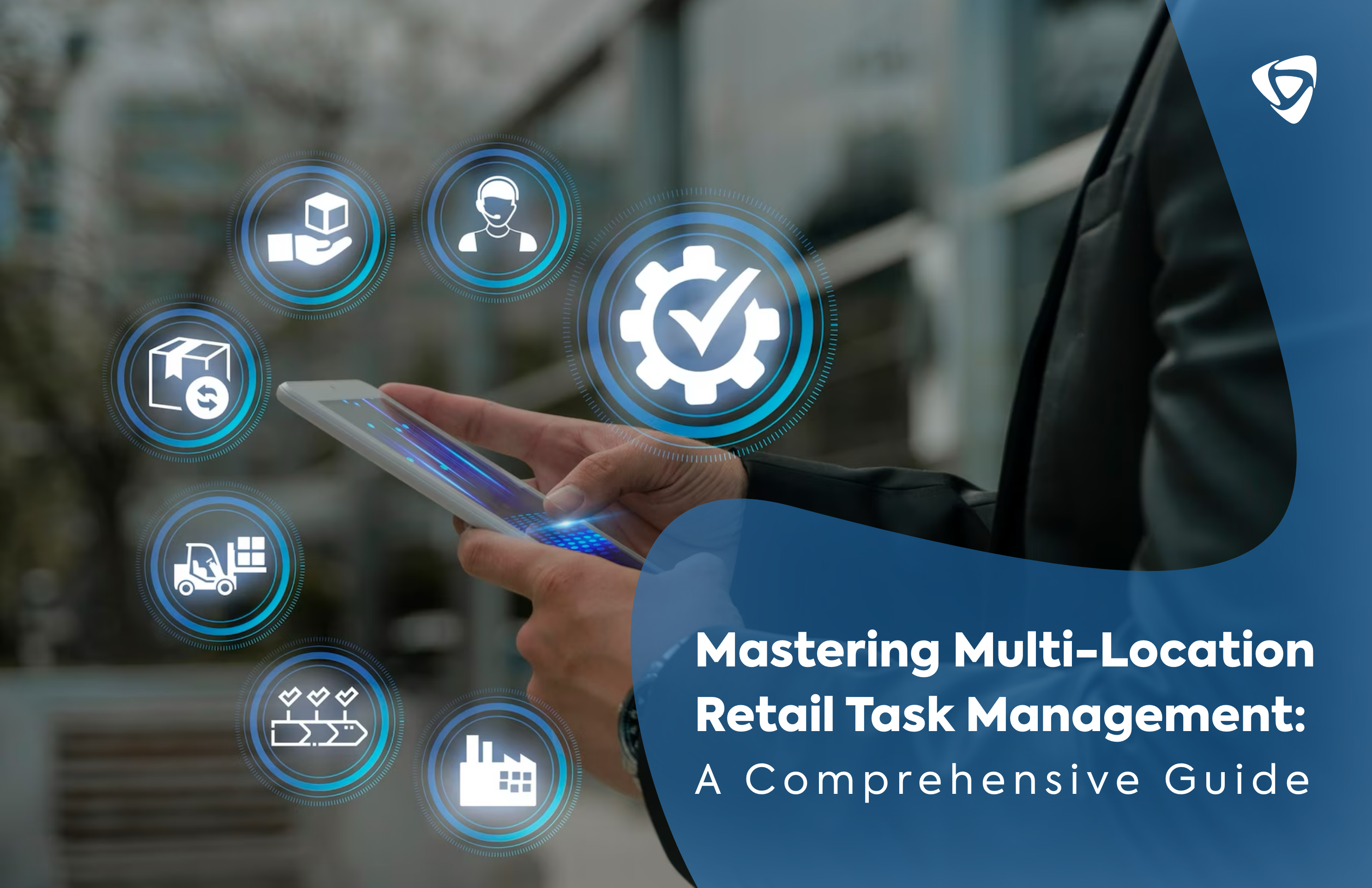
Do you need help keeping track of tasks across multiple retail locations? Effective multi-location retail task management is the basis of success in businesses with multiple retail locations. Effective multi-location retail task management guarantees smooth operations, raises productivity, and improves customer satisfaction.
You are in the right place if you are struggling with multi-location retail task management. This article examines approaches to master multi-location retail task management in multi-location retail outlets involving factors like scheduling, communication and prioritization. Keep reading to know more!
Understanding Multi-Location Retail Task Management
Multi-store task management in retail requires effective management of activities at different store locations for seamless operations. Multi-store task management needs effective scheduling, communication, and prioritization approaches adjusted to the particular requirements of every location.
It interprets to allocate tasks, keep track of the progress and handle arising issues as they present themselves. Winning in this arena translates into greater productivity, increased customer satisfaction and eventually higher profitability for the retail industry.
Multi-location retail task management includes scheduling, communication, and coordination, which are geared towards ensuring efficient operations and good customer experience.
- Scheduling: Scheduling of employees, deliveries and maintenance jobs across different locations.
- Communication: Set up functional communication networks between the headquarters, managers and the staff at different locations.
- Coordination: Effectiveness in assigning, tracking, and completing tasks in all outlets.
Challenges faced in managing tasks across multiple retail locations
Coordinating activities across several stores brings up numerous issues which need to be dealt with by adopting tactical approaches to achieve operational efficacy and customer satisfaction.
- Coordination Complexity: The complexity increases due to managing tasks and schedules at various locations staffed at different levels according to the requirements.
- Communication Barriers: Communication barriers between headquarters, managers and personnel at different sites increase the chances of miscommunication and delays.
- Consistency Maintenance: Brands should adopt customer service standards across all locations to stand for consistency in the way operations are carried out.
- Logistics Management: Tracking the assets across geographically distributed facilities is a challenging task because if in case there is a malfunction or inventory damage that can lead to unnecessary delays.
- Employee Accountability: Monitoring and checking task completion and company policies and procedures compliance at each site is another challenging task of managing multi-location stores.
Key Components of Effective Task Management in Retail
Let’s understand the key components of effective task management in retail.
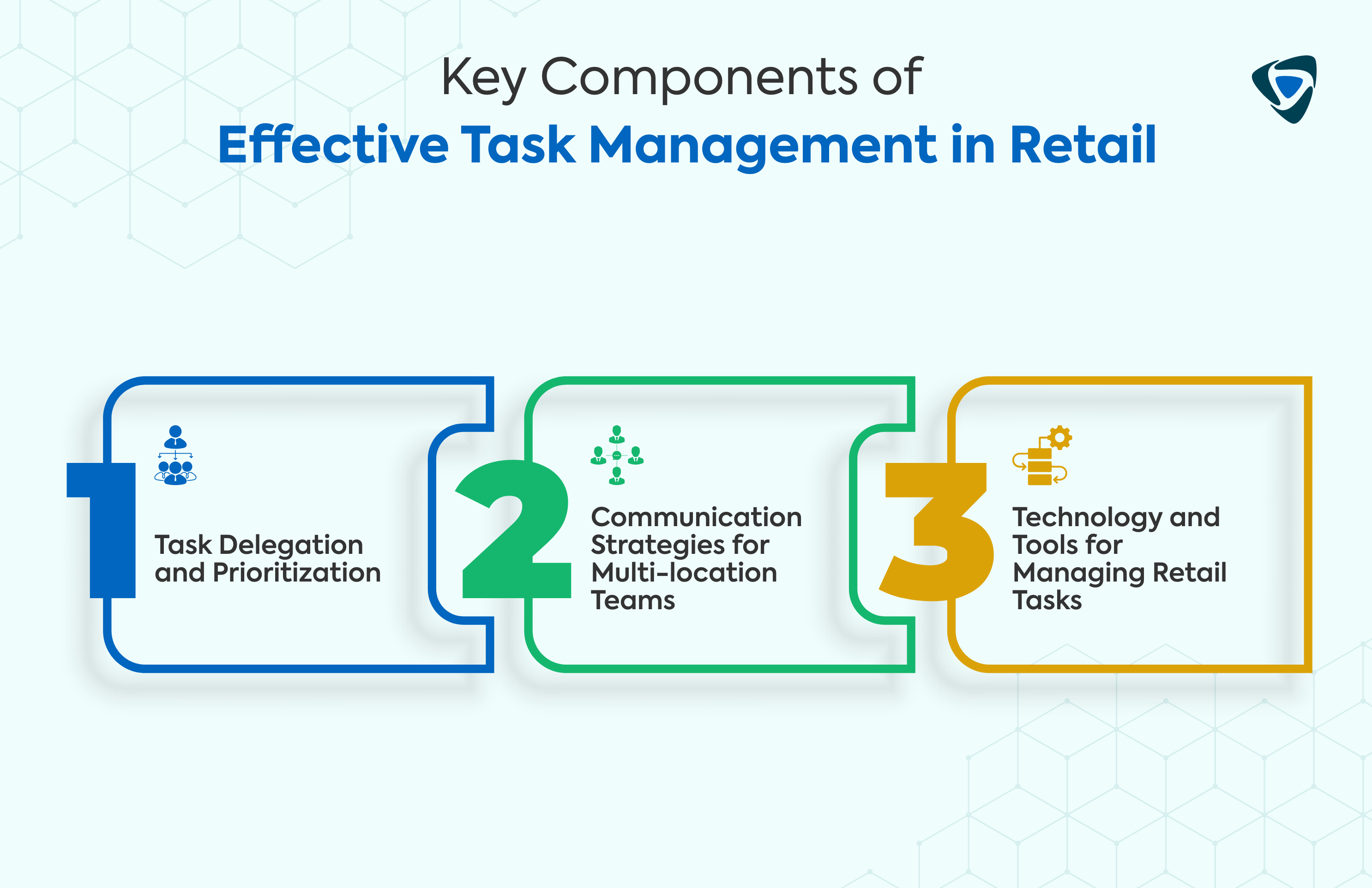
-
Task Delegation and Prioritization
Properly assigning tasks to the right team members with urgency and importance leads to the utmost productivity. It implies understanding the strengths of every employee as well as their load capacity to delegate effectively. In addition to that, prioritizing essential tasks and allocating resources accordingly keeps the deadlines and business goals met.
-
Communication Strategies for Multi-location Teams
Establishing clear communication channels and protocols between headquarters, managers and staff at different locations encourages collaboration and keeps all staff aligned with organizational objectives. The team meetings, the virtual communication tools, and the centralized platforms as the sites for information sharing speed up information exchange and problem-solving. Effective communication includes active listening, feedback and immediate addressing of issues to keep morale and productivity high across all locations.
-
Technology and Tools for Managing Retail Tasks
With the use of task management software and communication platforms information exchange becomes easy, faster and shareable across all locations at the same time. Automated reminders, task assignments, and custom workflows increase efficiency and decrease administrative burden.
Integration of inventory management systems and analytics tools also makes the decision-making data-driven and improves the overall operational efficiency. Embracing user-friendly retail task management software equips employees with the ability to collaborate effectively and respond to retail dynamics, which propels business growth and customer satisfaction.
Strategies for Efficient Workflow in Multi-Location Retail
In this section, let’s find out key techniques to perfect workflow management in retail with multiple locations that make them consistent, efficient and superior to customers.
-
Best Practices for Creating Standardized Procedures
Standardizing the processes guarantees uniformity and productivity in all retail stores. Documenting the workflows, such as opening and closing procedures, inventory management, and customer service policies, ensures that employees act systematically, thereby avoiding mistakes. Regular auditing and reviewing of procedures according to the feedback and the changing business needs keep the relevance and effectiveness.
-
Techniques for Ensuring Consistency in Customer Experience Across Locations
Consistency is essential to build customer trust and loyalty. Training programs centring on brand values, service standards, and product knowledge maintain consistency in customer interactions. Mystery shopper programs and customer feedback collection facilitate the monitoring of service quality and the identification of areas for improvement.
-
Role of Automation in Streamlining Tasks
Mundane tasks are eliminated, giving employees time to concentrate on serving clients with excellence with automation. Introducing automated inventory management systems, scheduling software, as well as communication platforms eliminates human error, facilitates efficiency and improves overall workflow. Integrating automation into retail operations ensures task accuracy, productivity enhancement and coordination between various sites.
Overcoming Common Challenges
Let’s understand the challenges commonly faced in multi-location retail and strategies to overcome them.

-
Addressing Communication Barriers
Create effective communication channels and standards to unite headquarters, managers and workers in different locations. Use retail task management software for live updates and virtually held meetings.
-
Managing Staff Performance and Accountability
Invest in robust performance monitoring systems that give regular feedback and propose training programs to keep the standards uniform at all branches. Appreciate employees with meritorious performance through recognition and incentives for accountability.
-
Handling Inventory and Supply Chain Complexities
Leverage inventory management software for tracking stock levels and optimizing replenishment. Create strong supply chain partnerships and contingency plans to minimize disruptions and have optimal inventory distribution.
-
Adapting to Local Market Dynamics
Carry out market research to find out local preferences and adapt the assortments and marketing strategies accordingly. Provide local managers with the authority to make decisions thus they can tailor operations to the specific market needs.
-
Maintaining Brand Consistency
Standardize branding elements and customer service practices across all branches. Cover all employees on brand training and regularly check compliance with standards for brand consistency.
Case Studies and Real-World Examples
There are ample multi-location retail businesses that ensures success with inspiring stories on expansion, customer happiness and operational perfection.
Starbucks: Crafting a Global Coffee Experience
The Starbucks, which started in 1971 in Seattle’s Pike Place Market, began as a single store. By strategic expansion and quality, as well as customer experience, Starbucks has turned into a global powerhouse with more than 30,000 locations worldwide. The success of the brand can be attributed to the creation of a distinct coffeehouse aura, the provision of top-quality products and the development of customer relations via loyalty programs and community initiatives.
McDonald’s: Serving Consistency Across Continents
McDonald’s was launched in 1940, and the company became the most transformed fast-food business through the introduction of a standard food menu, streamlined ordering and a simple but successful logo. Having over 38,000 locations in more than 100 countries, McDonald’s keeps its success by adopting the different local tastes but maintaining quality and consistency in all its locations. It stems from its innovation, evolution and ability to follow changing consumer tastes.
Walmart: Redefining Retail on a Massive Scale
Walmart, launched in 1962, changed the retail sphere with its low-cost strategy, extended product assortment and efficient supply chain management. Walmart, which has more than 11,000 stores around the world, serves millions of customers daily with a variety of products at attractive prices. Its achievement can be attributed to playing on economies of scale, technology, and customer satisfaction through easy shopping and online stores.
Amazon: Leading eCommerce Innovation
Amazon, which was established in 1994, was the game changer in the retail industry by launching electronic commerce and branching out into other fields. Amazon leads successful deliveries of its millions of products through a huge fulfilment network and distribution network. It owes its success to its unwavering commitment to innovation, customer-oriented attitude and investment in technologies such as artificial intelligence and robotics to improve the way it does business and the way its customers shop.
Lessons learned from failed task management strategies
The unsuccessful strategies of project management in multi-site retail businesses are invaluable for correction and development.
- Inadequate Communication Channels: Poor communication causes misinterpretation, delay, and ineffectiveness across locations.
- Lack of Accountability: The absence of accountability on the tasks the employees conduct results in the failure to meet the deadlines and the low performance.
- Insufficient Training and Support: Lack of training and support has a negative impact on employee productivity as well as causes task execution failures on the part of many locations.
Future Trends in Retail Task Management
Future trends in retail task management are created by technological innovations and new consumer patterns, which define a higher level of efficiency and customer orientation.
Growing IoT and AI technologies are transforming retail task management. AI-enabled algorithms with data analysis will improve inventory management and customer demand forecasting, while IoT devices provide real-time information on store operations, allowing for proactive actions.
The future of the operations of retail business is going to be characterized by harmony of online and offline channels, personalized shopping and practices of sustainability. Automation will continue to eliminate repetitive tasks, leaving employees to focus on bettering customer satisfaction.
In addition to that, multichannel retailing will require flexible task management systems that can adapt to fluctuating consumer choices and market fluctuations. At large, agility, innovation, and responsiveness to constantly changing consumer expectations in the digital era will be the future focus of retail task management.
Wrapping up,
Staying connected, communicating well and being flexible are important to ensure success in multi-location retail store management. Consequently, businesses can make the operations universal through standard procedures and via technology applications, satisfying the customer. The path to becoming proficient in task management is a process of regular assessment, communication, and constant progress. Through commitment and persistence, businesses can reach operational excellence, generate growth, and provide remarkable experiences which will differentiate them in the competitive retail arena.
 Schedule A Demo
Schedule A Demo 


